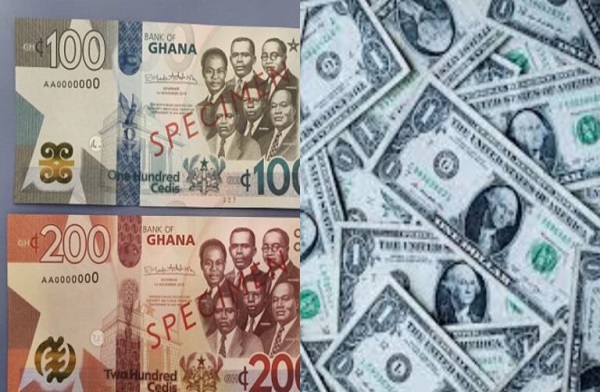
Audio By Carbonatix
Professor Godfred Bokpin, an economist and finance expert, has attributed part of the cedi’s depreciation to the International Monetary Fund’s (IMF) programme with Ghana.
He said that under the IMF programme, the Central Bank was barred from intervening in the currency exchange market when the Cedi fell against major trading currencies.
That situation prevented the Bank of Ghana (BoG) from entering the foreign currency market to stabilise the Cedi.
Prof. Bokpin commented on a local radio station that was monitored by the Ghana News Agency (GNA) over the weekend.
“Part of the reason why the cedi is depreciating is also consistent with the latest IMF-supported program. Under the IMF-supported programme, they favour a stable exchange rate.
“This limits the ability of the central bank to be in the market and fight off the depreciation through our reserves.
“Part of the IMF programme is to build our reserve of three months of import cover for 2026…What that means is that it tightens the hands of the central bank to intervene in the market to sell dollars to stabilise the cedi.
“Now they cannot do that under an IMF programme,” he said.
In May 2023, the IMF Executive Board approved a US$3 billion External Credit Facility (ECF) with Ghana for 36 months.
Prof. Bokpin also identified other factors that have influenced the cedi’s recent depreciation.
He said that the cedi’s depreciation was also triggered by the delayed foreign debt restructuring, which affected the receipt of the third tranche of the ECF under the IMF programme.
The IMF has indicated that it would transfer the third tranche of $360 million, notwithstanding Ghana’s inability to negotiate a final debt agreement with its official bilateral creditors.
Mr. Charles Kusi Appiah Kubi, a representative of the Ghana Union of Traders Association (GUTA) and a panellist on the discussion, suggested the prioritisation of retention policies to stabilise the cedi since multinational companies would be barred from repatriating profits.
Dr. Kwabena Nyarko Otoo, Director of Research for the Trade Union Congress, also encouraged the Central Bank to address the “open” trade of foreign exchange in Ghana, particularly the black market, to relieve pressure on the cedi.
Latest Stories
-
They ignored orders to vacate the site—Assemblyman speaks on Atta ne Atta galamsey tragedy
2 minutes -
Health benefits of peanuts
6 minutes -
University of GoldCoast, ICAG sign MoU to strengthen finance education and financial literacy
19 minutes -
Minimie Atsomo launches ‘Laugh-It-Off Creator’ challenge to support digital creators
20 minutes -
Police probe death of Liberian man after mob attack in Lashibi
24 minutes -
Why training children in AI today could shape Ghana’s future
28 minutes -
President Mahama recalls having nightmares after his father’s detention following 1966 coup
31 minutes -
Interim Kotoko coach Prince Owusu blames players for Vision FC draw
32 minutes -
Ghanaian residents in Qatar asked to register for emergency preparedness
39 minutes -
Ps. Jerry Eze, others to headline 2026 iYES Conference
53 minutes -
10th Anniversary: Manye Nueki aka Gifty Rafiatu Carboo
59 minutes -
Thousands more flights cancelled as Iran strikes continue
60 minutes -
Ambassador Smith rallies US-based clergy to ignite patriotism and investment in Ghana
1 hour -
Kojo RYCHY’s ‘report’ highlights faith, struggle and unexpected support
1 hour -
Taxation of Electronic Commerce activities in Ghana
1 hour

